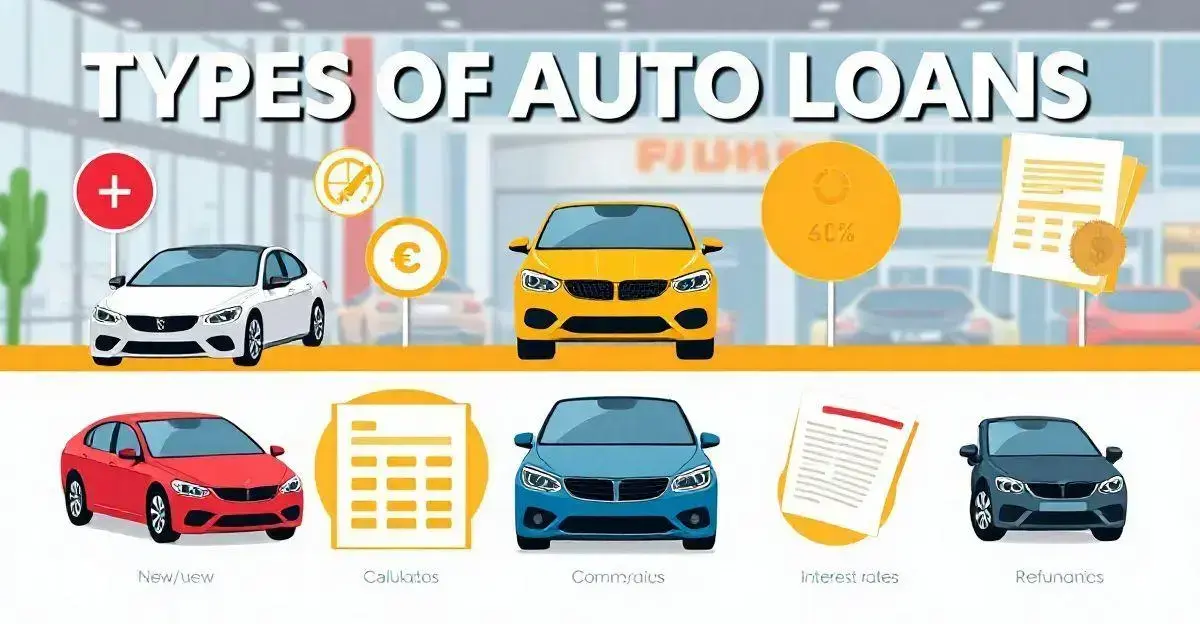Auto financing is a key factor in making your vehicle purchase more manageable over time. It affects not just how much you pay each month, but also the overall cost of your car in the long run. Navigating the options available can lead to significant savings, helping you secure the best deal possible.
There are various financing routes to explore, from loans offered by banks and credit unions to dealership financing, each with its pros and cons. The terms you qualify for depend heavily on your credit score and understanding these details can make a huge difference in the offer you get.
If you want to ensure you’re making the smartest decision, learning about how to improve your credit score and understanding loan types is crucial. Keep reading to uncover tips on securing the best rates and avoiding common mistakes that could cost you more than necessary.
Understanding Auto Financing
Understanding auto financing is essential for anyone looking to purchase a vehicle. With so many options available, it can be challenging to navigate the world of loans and interest rates. Auto financing typically involves obtaining a loan specifically for buying a car, which you then repay over time with interest.
One of the first steps in understanding auto financing is knowing the different types of loans available. There are direct loans from banks or credit unions and dealership financing. Direct loans often have more favorable terms, while dealership financing can be more convenient, but may come with higher rates.
A key factor in auto financing is your credit score. Lenders use this score to evaluate your creditworthiness. A higher score can lead to better rates and terms. Therefore, it’s crucial to check your credit report before applying for a loan.
Additionally, it’s important to understand the total cost of financing. This includes not just the loan amount but also fees, insurance, and other related costs. Taking the time to compare offers from different lenders will help you make an informed decision.
Overall, understanding auto financing is about being informed and prepared. Knowing your options, what influences your rates, and having a clear budget can lead to a smoother vehicle purchase experience.
Types of Auto Loans

There are various types of auto loans available, each catering to different needs and financial situations. Understanding these options is crucial when financing your next vehicle.
One common type is the conventional auto loan, where you borrow from a bank or credit union and repay it over time with interest. This option typically requires a down payment and comes with fixed or variable interest rates, depending on your lender and creditworthiness.
Manufacturer financing is another option, often promoted by car manufacturers. This could include low-interest loans for qualifying buyers, available directly from the dealership. While these deals can be attractive, it’s essential to compare them with conventional loans to ensure you get the best overall deal.
A third type is the lease, which allows you to pay for the use of a vehicle instead of owning it outright. Leasing typically involves lower monthly payments but comes with mileage limits and potential fees for excess wear and tear.
Lastly, subprime auto loans cater to those with lower credit scores. While they can provide access to financing, they often come with higher interest rates, making the total cost more expensive over time.
Understanding these various types of auto loans can help you choose the best option for your financial needs and vehicle preferences.
How to Improve Your Credit Score
Improving your credit score is crucial for securing the best auto financing options. A higher score can lead to lower interest rates and better loan terms.
A common method to enhance your credit score is to pay your bills on time. Late payments can have a significant negative impact. Aim to set up reminders or automatic payments to avoid missing deadlines.
Another effective strategy is to reduce your overall debt. Keeping your credit card balances low relative to your credit limit is important, ideally below 30%. This practice is known as your credit utilization ratio and plays a key role in determining your score.
Additionally, consider checking your credit report regularly. There may be errors that could affect your score negatively. If you find inaccuracies, dispute them with the credit bureau to have them corrected.
Also, refrain from opening multiple new accounts at once, as this can lead to hard inquiries and may temporarily lower your score.
Finally, having a mix of credit types, like installment loans and revolving credit, can positively influence your credit score. Managing these responsibly shows lenders you can handle different types of debt.
Tips for Getting the Best Loan Rates

To secure the best loan rates for your auto financing, it’s important to do some preparation. Start by checking your credit score and addressing any issues that may be present. A higher credit score typically leads to better rates. Consider paying off existing debts to improve your credit utilization ratio.
Next, shop around for loans from different lenders, including banks, credit unions, and dealerships. Each may offer different rates and terms, so compare them thoroughly.
Additionally, consider getting pre-approved for a loan before visiting dealerships. This not only gives you a clearer idea of your budget but also strengthens your negotiating position.
Don’t forget to negotiate your loan terms; sometimes, lenders are willing to offer better rates if you ask. Lastly, keep an eye out for special promotions or deals that may be available, especially from manufacturers or dealer financing options that could reduce your interest rates significantly.
By following these tips, you’ll be in a great position to secure favorable loan rates for your vehicle purchase.
Common Mistakes to Avoid in Auto Financing
When it comes to auto financing, avoiding common mistakes can save you time and money. One major mistake is not researching loan options thoroughly. Many people assume that dealership financing is the best option, but it’s important to compare offers from banks and credit unions as well.
Another mistake involves overlooking your credit score. Failing to check your score before applying can lead to unexpected terms and higher interest rates. Always acquire a copy of your credit report and address any discrepancies beforehand.
A third mistake is not budgeting properly for the full cost of ownership. Many buyers focus only on monthly payments and ignore factors like insurance, maintenance, and fuel costs. Understanding your total expenses can prevent financial strain later.
Moreover, be cautious about extending the loan term to achieve lower monthly payments. While this may seem appealing, it often results in higher overall interest costs. Instead, aim to keep loan terms as short as possible while still being affordable.
Lastly, do not skip the fine print. Reading your loan agreement is vital to understanding all fees and charges associated with your financing. This knowledge can prevent unpleasant surprises down the road.
Refinancing Your Auto Loan: Is It Worth It?
Refinancing your auto loan can be a smart financial move if done correctly. It involves replacing your current loan with a new one, ideally with better terms. Many people choose to refinance to secure a lower interest rate, which can lead to lower monthly payments and total savings.
To start, check your credit score, as a higher score can qualify you for better rates.
Another reason to consider refinancing is to adjust the loan term. If your financial situation has changed, you may want to shorten the term to pay off the loan faster or extend it to lower your monthly payments. However, be cautious of the trade-offs involved, such as higher overall interest costs.
It is essential to shop around for the best refinancing options. Different lenders offer various rates and terms, so comparing them is necessary to find the best fit for your financial needs. Look at fees associated with refinancing as well, as they can impact your total savings.
Finally, consider the timing of your refinancing. If interest rates are on the rise, acting sooner may be beneficial. Refinancing can be worth your time and effort if it results in significant savings over the life of your loan.
Wrapping Up Your Auto Financing Journey
In conclusion, understanding and navigating the world of auto financing is vital for making informed decisions when purchasing a vehicle. By recognizing the various aspects such as types of loans, improving your credit score, and getting the best loan rates, you can secure favorable terms that benefit your financial health.
Avoiding common pitfalls and considering options like refinancing can also lead to significant savings over time. Financing a vehicle is more than just taking out a loan; it involves careful planning and research to ensure that you make the best choice for your unique situation.
Always remember to stay informed and proactive in your approach, as this will empower you in your quest for the vehicle of your dreams.


